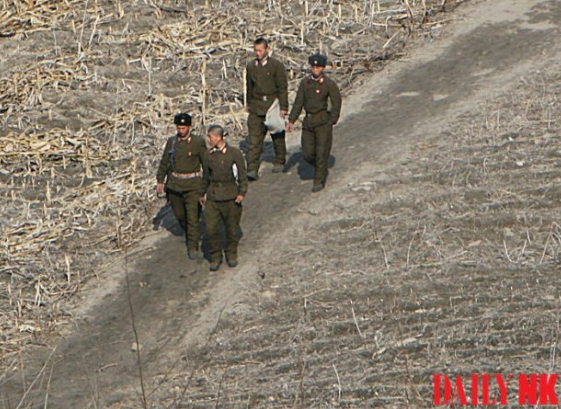Multiple sources in North Korea have reported that the North Korean authorities are cracking down on government officials who have accumulated wealth through illicit means.
“The North Korean authorities have begun crackdowns on cadres who are siphoning off money from residents in Pyongyang,” said a source in Pyongyang during a phone call with the Daily NK on May 10. “I heard that the crackdown began when complaints were made by residents against cadres who were running off with people’s money.”
The source said that cadres are involved in a wide range of schemes to take money from regular North Koreans, including bribes for desirable military posts, easing entrance into universities, and reducing prison sentences. “Senior cadres took action because they likely believed the foundations of the state are collapsing due to all of the illicit activity,” the source said.
The crackdown on these illicit activities is also visible in other areas of the country as well. A source in Ryanggang Province reported on May 9 that “[t]here are signs that strong crackdowns will occur in Ryanggang Province and other border provinces. Cadres are looking nervous, and those involved in trade are particularly worried.”
North Koreans can pay cadres a bribe of 300-400 US dollars for entrance into an education department of a university, while a bribe of 2,000 US dollars will streamline entrance into Pyongyang Medical College. North Koreans must pay at least 3,000 US dollars to ensure entry into Kim Il Sung University.
North Koreans offer bribes of 200 US dollars and 300-400 US dollars to become local-level cadres and Party apparatus cadres, respectively. Provincial level cadre positions require bribes of up to 600-800 US dollars. A North Korean living in the countryside can purchase a Pyongyang residence permit for 10,000 US dollars.
However, the problem is that cadres frequently fail to “grease the wheels” as they have promised, and those who have paid bribes are left unable to protest the injustice.
“One Pyongyang resident wanted to bring his married daughter, who lived with her soldier husband in the countryside, to Pyongyang. He gave a cadre in charge of resident registration a lot of money, but he didn’t receive a response from the cadre for more than a year,” said a separate source in Pyonyang.
“When he asked for the money back, the cadre said that he had already used the money and that the man should just wait until the deed is done.”
Many North Koreans claim that government officials bring their positions into disrepute and are “shameless beyond belief.”
The North Korean authorities have moved to take action in the face of complaints of corruption among government officials, but many have little expectation of progress in resolving the underlying issue.
“The Party has sent a strong warning by cracking down on cadres stealing money from ordinary North Koreans, but the bribery culture still remains even after one official is replaced with another,” said the additional source in Pyongyang, adding that North Koreans do not believe that the crackdown will have a long-lasting effect on changing this culture.
Some North Koreans, he said, even complain about the “lax morals” of the cadres tasked with conducting the crackdown.
“Many expect the cadres leading the crackdown to take it as an opportunity to elicit more bribes from the population, and that only low-level cadres without any money or power will get punished for corruption,” he explained.
The crackdown on corrupt practices comes on the orders of the Supreme Leader. However, its effectiveness is severely reduced due to the structural contradictions that exist in having corrupt cadres investigate and punish each other.
“These crackdowns always bring about the reverse effect because only innocent bystanders get hurt in this kind of fight,” said the initial Pyongyang-based source.
“There are gradually more and more North Koreans who are talking about the need to change the country’s core social structure, which only breeds corruption.”





















